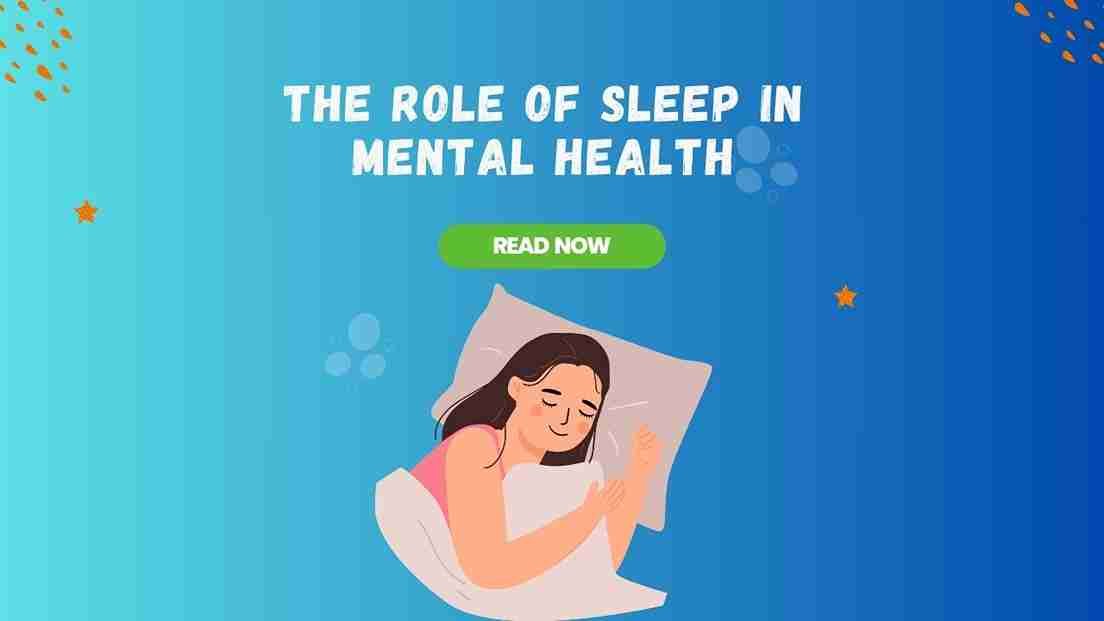In the relentless pursuit of improving our mental health, we often overlook a fundamental factor that can significantly impact our psychological well-being: sleep. In this comprehensive article, we explore the intricate relationship between sleep and mental health, shedding light on how a good night’s rest can be a game-changer in fostering emotional resilience, cognitive sharpness, and overall psychological well-being.
Understanding the Basics
The Sleep-Mental Health Connection
The link between sleep and mental health is profound. Quality sleep is not merely a matter of physical rest; it plays a vital role in our cognitive and emotional equilibrium. When we sleep, our bodies undergo various processes, including memory consolidation, emotion regulation, and hormone production. Disruptions in these processes can lead to a multitude of mental health issues.
The Staggering Prevalence of Sleep Disorders
Sleep disorders have become a silent epidemic in today’s fast-paced world. Conditions such as insomnia, sleep apnea, and restless leg syndrome affect millions of individuals, often leading to chronic sleep deprivation. This sleep deficit can, in turn, give rise to a host of mental health problems, including anxiety, depression, and mood disorders.
Also check: The Role of Nutrition in Mental Health
The Sleep-Mental Health Nexus
Improved Cognitive Function
Sleep is not just about feeling rested; it’s about optimizing our cognitive abilities. A good night’s sleep enhances memory consolidation, problem-solving skills, and creativity. When we’re sleep-deprived, our cognitive functions suffer, making it harder to focus, retain information, and make sound decisions.
Emotional Resilience
Adequate sleep is the bedrock of emotional well-being. It helps regulate mood, ensuring that we can navigate the ups and downs of life more effectively. Lack of sleep can lead to irritability, increased stress, and a heightened susceptibility to mood disorders such as anxiety and depression.
Hormonal Harmony
Sleep is closely linked to the production and regulation of essential hormones, including cortisol, serotonin, and melatonin. These hormones play a pivotal role in managing stress, mood, and the sleep-wake cycle. Disturbances in these hormonal rhythms can wreak havoc on our mental health, leading to mood swings and anxiety.
Also check: Understanding Anxiety Disorders
Practical Tips for Better Sleep
1. Establish a Consistent Sleep Schedule
Going to bed and waking up at the same time every day helps regulate your body’s internal clock. This consistency can significantly improve the quality of your sleep.
2. Create a Relaxing Bedtime Routine
Engage in calming activities before bed, such as reading, gentle stretching, or meditation. Avoid stimulating activities like working or watching intense TV shows.
3. Optimize Your Sleep Environment
Ensure your bedroom is conducive to sleep by keeping it cool, dark, and quiet. Invest in a comfortable mattress and pillows.
4. Watch Your Diet
Avoid caffeine, heavy meals, and alcohol close to bedtime. These substances can disrupt your sleep patterns.
5. Stay Active
Regular physical activity can promote better sleep. However, avoid strenuous exercise close to bedtime, as it may have the opposite effect.
Seek Professional Help
If you continue to struggle with sleep-related issues and their impact on your mental health, it’s crucial to consult a healthcare professional. They can offer tailored guidance and treatments, such as cognitive-behavioral therapy for insomnia or medication when necessary.
Conclusion
In the ever-evolving landscape of mental health, we must recognize the indispensable role that sleep plays in maintaining psychological well-being. By prioritizing our sleep and understanding the intricate interplay between sleep and mental health, we can embark on a journey toward a healthier, more resilient, and emotionally balanced life.
So, the next time you find yourself struggling with stress, anxiety, or mood swings, remember that a good night’s sleep might be the most powerful remedy at your disposal.









